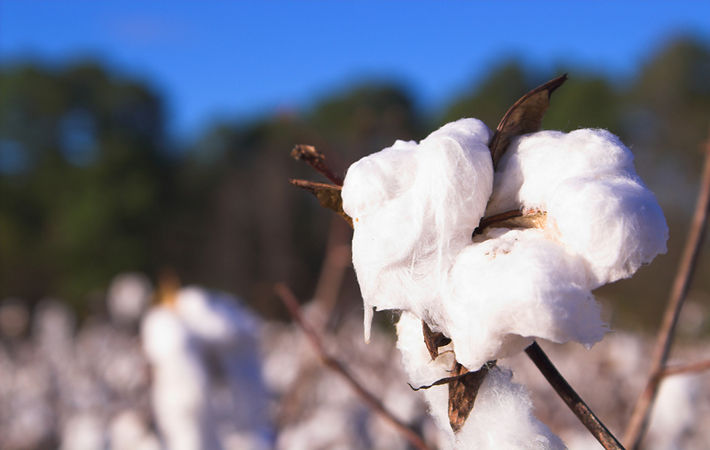
As a natural fibre grown and harvested straight from the earth, sustainability is a value deeply rooted in cotton from the beginning. Naturally occurring benefits combined with intentional production efforts at the very start of cotton’s lifecycle—the farm—can alter cotton’s impacts related to carbon, energy, water, and more, CottonWorks said in a press release.
The journey to a more sustainable future continues beyond the farm. Smart product development and ongoing innovation can lessen cotton’s environmental impact during production. For Cotton Incorporated, that means educating and equipping brands with tools to see the journey through
Making sustainable decisions in manufacturing can be as easy as choosing to use natural fibres. That’s why Cotton Incorporated is constantly developing cotton-rich fabrics in the FABRICAST collection to inspire your next cotton product. And for this Earth Day, the latest FABRICAST collection highlights natural dyes, as CottonWorks has partnered with leading natural dye manufacturers to show a range of knits and wovens dyed with natural indigo, madder root, marigold flowers, and pomegranate peels, as well as dyestuff made with textile waste materials. This allows product developers to go all-natural, from fiber to finishing!
Creating a more durable, lasting product can mean a longer life for the product, thus reducing space in the landfill. While cotton already boasts innate durability, it can also be enhanced through functional finishing or blending with other high-performance fibres. Cotton Incorporated’s Tough Cotton performance technology can stand up to wear and tear on both knit and woven fabrics, displaying a unique combination of abrasion resistance, strength, and colorfastness throughout the life of the garment. Cotton Incorporated also partnered with several fiber manufacturers, such as Dyneema and Invista Cordura, to design cotton-rich fabrics with improved abrasion resistance and tensile and tear strength, suitable for active, outdoor, and workwear needs.
Warp knitting technology for activewear has been dominated by non-biodegradable filament yarns like polyester and nylon due to their strength and performance. Cotton Incorporated took on the challenge to show how cotton can be utilized in warp knitting through a partnership with a leading warp knitting machinery manufacturer. While synthetics have been historically used for warp knitting to avoid issues with low yarn strength and hairiness, a solution came about through compact ring-spun cotton yarn in a range of 100 per cent cotton warp knit fabrics ideal for athletic and athleisure clothing. These warp knits provide a 100 per cent natural alternative to synthetic warp knits without sacrificing performance.
Cotton’s sustainable journey doesn’t have to stop at the manufacturing level. While recycled cotton is not a new concept in the textile and apparel market, the interest in it continues to grow as manufacturers, brands, and retailers continue to evaluate their supply chain footprint and sustainability goals.
One example of how Cotton Incorporated advocates for ongoing sustainability at the consumer level is through its denim recycling program, Blue Jeans Go Green, which recycles old denim jeans to be converted into insulation. Created in 2006, the programme has collected over 3.9 million pieces of denim and diverted over 1,950 tons of textile waste from landfills.
Fibre2Fashion News Desk (RR)